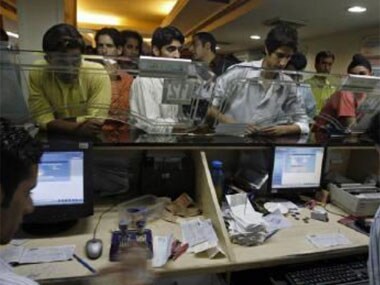New Delhi: State-owned Punjab National Bank today reported a 11.6 percent drop in net profit to Rs 1,065 crore on account of higher provisioning for bad loans in the September quarter, disappointing investors as its shares tanked about 7 percent.
The country’s second largest PSU lender by assets had a net profit of Rs 1,205 crore in the July-September quarter of 2011-12 fiscal. “The results are not as per our expectation,” PNB Chairman K R Kamath told reporters here.
[caption id=“attachment_504157” align=“alignleft” width=“380”]
 Reuters[/caption]
Reuters[/caption]
The net Non-performing Assets (NPAs) or bad loans as a percentage of total assets rose to 2.69 percent in the July-September quarter, from 0.84 percent during the same period a year ago.
“It is a reflection of what is happening in the economy. It is difficult to say whether the worst is over. It all depends on how economy behaves in next 3-6 months,” he said.
In absolute term, the net NPA of the Delhi-based bank jumped to Rs 7,883.43 crore in the July-September quarter, from Rs 2,088.51 crore in the year ago period.
During the quarter the bank provisioning towards NPAs stood at Rs 1,140 crore, a 257 percent jump over Rs 319 crore provisioned in the September quarter of last fiscal.
“Higher provisioning is on account of higher NPA slippage. In some way it is a reflection of what is happening in the economy,” Kamath said. Shares of Punjab National Bank slipped sharply on the earnings as NPAs rose. PNB’s shares ended at Rs 748 on the BSE, down 7.01 percent from previous close.
Many PSU lenders have exposure to debt-laden firms like Kingfisher Airlines, Deccan Chronicle, the beleaguered state electricity boards and power and infrastructure projects. “Wherever investments are not in a position to generate income, the government has to work to reduce bottlenecks else banks will have to take a hit in their books,” Kamath said.
PTI
)